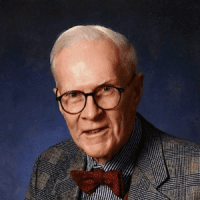The new academic year and the first fall issue of Perspectives find the Association with a serious communications problem—too much news and too little space in which to report events over a four-month period to members busily engaged in coping with new classes and new concerns.
Since the Professional Division met at the end of April and the Council in early May, we will start with a brief report of the actions of these two major governing bodies.
The Professional Division’s available time was focused largely on cases of the alleged breach of the AHA’s Statement on Standards of Professional Conduct. As well as discussing further developments on cases previously decided, the Committee took up eight new formal complaints and three informal inquiries. Of the seven cases the Division decided, it found that evidence did not support the allegations in four of the cases while it found evidence of plagiarism or misuse of material in two and a clear case of sexual harassment in the other case. The Division also decided to review the entire process of handling questions of professional conduct at its fall meeting.
The May meeting of the Council took place in Washington on May 7–8 and covered many topics. The Finance Committee of the Council discussed and approved a budget for the July 1, 1993–June 30, 1994 fiscal year, forecasting a ninth year of balanced budgeting. Noting the somewhat less cheerful prospects for subsequent years, the Council directed staff to develop alternative recommendations for possible dues structure increases before it next meeting in January in San Francisco. The present dues structure has remained unchanged since 1988 while most sister societies and other disciplinary organizations have implemented at least one and in some cases two increases.
The most pleasant duties of the Council were to elect a distinguished historian from Cameroon, Dr. Martin Njeuma, to be an honorary member, and to prepare the final arrangements for an amicable arrangement with the National History Standards Council to harmonize its and the Association’s views. It also voted to accept applications of the Organization of American Historians and the Society of American Historians for formal affiliation with the AHA.
On Professional Division matters, the Council approved a revision of the obsolete basic position paper on the organization, jurisdiction, and operation of all AHA standing committees. It endorsed a new and more informative section in the AHA Standards of Professional Conduct section on plagiarism to cover instances of misuse of sources.
Research Division recommendations for two clarifying changes in the guidelines for annual meeting program committees were adopted. The Council approved the appointment of Prof. Renate Bridenthal, Brooklyn College, to be program committee chair for the January 1996 annual meeting and to serve with her co-chair on the 1995 program committee as an observer-participant. The 1995 program committee chair’s, Robert Harris’s, recommendation of his committee’s members were approved. The Council accepted the Research Division recommendation of the appointment of Frederick Cooper, University of Michigan; Patricia Nelson Limerick, University of Colorado-Boulder; Louis A. Perez, Jr., University of South Florida; and Robert B. Westbrook, University of Rochester to the Board of Editors of the American Historical Review to fill vacancies caused by completion of terms of service of their predecessors.
The Council welcomed a report from the Parc 55 Hotel in San Francisco and from Local #2 of the Hotel and Restaurant Workers Union that they had resolved their labor dispute, which had threatened to deprive the AHA of a number of meeting rooms next January. (The Program Committee quickly moved to add several desirable sessions to the January program, which earlier space concerns had forced it to stockpile.)
At the Nominating Committee’s request, the Council decided to take back into its own hands the responsibility for choice of future Awards for Scholarly Distinction.
Summer is a time for foreign visitors at the AHA. Although our annual meetings regularly draw a large contingent, many of the visitors travelling under U.S. embassy international visitors’ programs who have an interest in history education stop by in summer. This year we had visitors from Nigeria, the Netherlands, Colombia, and France.
As this column is being written, word has been received that Sheldon Hackney, president of the University of Pennsylvania for more than a decade and earlier an active AHA member, has been confirmed by the Senate to be chair of the National Endowment of the Humanities. The AHA worked assiduously for his confirmation, mobilizing letters of support from historians around the country, and welcomes his appointment to that important post.
Also during the summer, the AHA provided witnesses for two sessions of the presidential task force on revising the recidivist and paranoid Executive Order on classification and declassification of federal documents, which was put into effect early in the Reagan first term. We are hopeful that despite bureaucratic inertia, something may be done to produce both better order and system and access by scholars to federal records, which may at some point have merited restricting access.
Finally, headquarters representatives were privileged to have a special tour of the newly opened U.S. Holocaust Museum, finding it an impressive and moving record of Nazi inhumanity and evil. Members will find it well worth a visit as they come to Washington, especially in view of the activities of the Nazi sympathizers of the present day to target AHA members.

